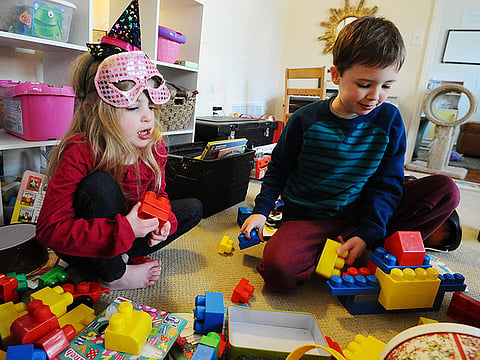The Henry James guide to parenting
We fetishise teenagers and are so bedimmed by their glamour and the power it wields that we mistakenly bow to their every whim

I was rereading Henry James’s excellent yet perplexing The Awkward Age (1899), a novel written almost entirely in dialogue. To thicken the plot, quite a bit of that dialogue is delivered by characters who are inviting the people they are speaking to to misunderstand them. It is a novel in which people constantly attempt to voice things that cannot quite be said, dreadful unutterable things that would define them as morally corrupt were they to be fully inferred. The reader has to maintain a hefty interpretative effort at all times. It is a thrilling undertaking.
The other day, I was reading The Awkward Age as a parenting guide. In the book, teenage Nanda Brookenham is allowed to mix freely with the adults who gather in her parents’ drawing room, where everything is about procreation, money and social climbing. Will some exposure to this milieu protect and defend her from falling prey to its complicated snares or will it coarsen her irrevocably? The worry is that what she learns in this setting will render her unmarriageable. She will know too much and it will be held against her.
By contrast, her friend Little Aggie is sheltered and cosseted to the point that her knowledge comes only from what she has seen in her nursery. She is a sort of perfect fool. Her knowing nothing at all, it is hoped, will distinguish her in the marriage market as great beauty would or an ancient title or a ton of money. The parents all seem to feel that they require their daughters to be better than they are themselves. They are all very corrupt so at least the bar is low. But should we hold our children back against a world that wants them fully grown-up by 12? Or does not knowing things make them even more vulnerable?
Perhaps occasioned by Mother’s Day, I have read seven articles on parenting in the past week. (By the way, Mother’s Day has become the new Valentine’s Day, fraught with so much expectation and scope for disappointment that if you’re not careful, you can suddenly find yourself in a made-for-TV mini-series based loosely on King Lear. But that is another story.) From these articles about parenting I learnt: we fetishise babies, sleeping on their floors holding their hands through the bars of their cots until we have to consult an osteopath for our RSI, and yet we demonise teenagers.
Glamour and the power
We fetishise teenagers and are so bedimmed by their glamour and the power it wields that we mistakenly bow to their every whim. Like assistants to Hollywood stars, we create monsters.
We are at fault for giving teenagers a great deal of pressure and almost no freedom, so we must expect and shoulder regular explosions for which we have only ourselves to blame. You cannot praise children too much. You can praise children too much.
I thought ruefully how you can ask a child to do something 20 times, with humour, with funny actions, with firmness, with a song and dance routine, with a joke about a cannibal who dislikes his mother-in-law being told, “Well, just eat the vegetables then”, with a bit of French and Spanish with a bit of the summer house scene from The Sound of Music thrown in. And yet on the 21st time of asking, you raise your voice and you’ve disgraced yourself. Is that shout what they’ll remember?
Parental anxiety is rife with good reason. We live in an age in which, when a teenage girl chats to a boy at a party, it is fairly normal for that young man to suggest the next day that she sends him a picture of herself and that picture is not meant to feature clothes. What is the best defence against that sort of carry-on? What would the Master have to say?
That afternoon, in a cafe, a wonderfully unexpected thing: a baby, belonging to strangers, took a massive shine to me. He was in a high chair that touched the edge of my table. He glanced at me, trained his eyes back on his bowl of orange mush, then looked me over once again. He had a fastidious air. Then he did something almost courtly: he held his hand out to mine and kept it held aloft until I shook it. It seemed to me that his feeling was it wasn’t quite right for us to be so closely situated without a formal introduction. After a little more consideration, he handed me a piece of toast and a salt cellar. He smiled as though I was the best person he had ever met. I was so happy.
I thought, I wish someone would write a book for children suggesting that they stylishly shrug off the need to test boundaries all day long and simply show respect, affection and approval. Then they could just sit back and watch their parents’ confidence soar.
— Financial Times


